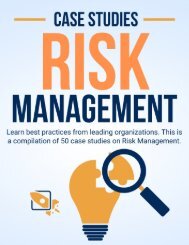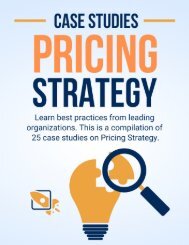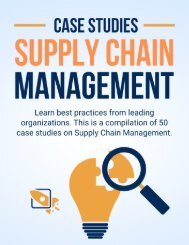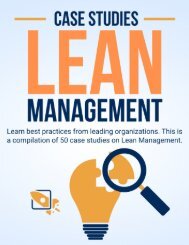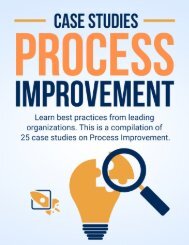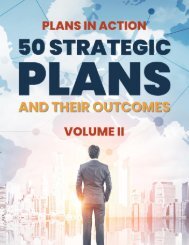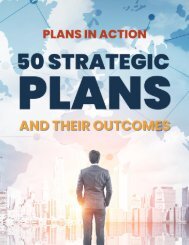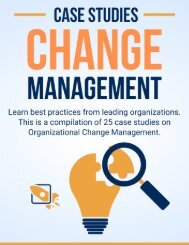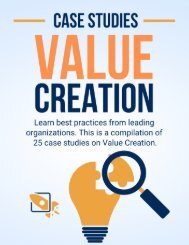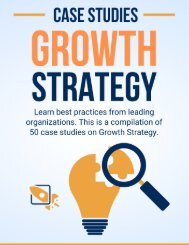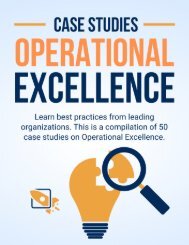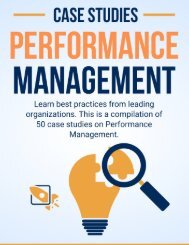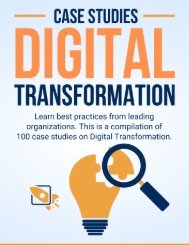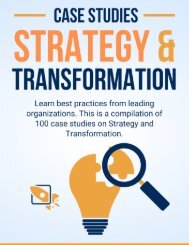Cracking the Consulting Code: Top 10 Digital Transformation Frameworks
Business frameworks and methodologies are structured tools to approach complex, but common business challenges. They allow us to cut through noise, zero in on the key issues, and facilitate the development of insightful recommendations. The importance and usefulness of business frameworks in the consulting world—especially among the global strategy firms—cannot be overstated. For consulting firms, these frameworks (https://flevy.com/top-100/consulting) are part of the bread and butter that enable them to consistently deliver value to client organizations across industries and geographies. Frameworks are helpful for several reasons: • They provide structured and detailed process for addressing the business challenge at hand. • They help ensure that the analysis is comprehensive and that critical aspects of a problem are thoroughly examined. • They accelerate the problem-solving process, as they allow consultants to apply proven methods and best practices, rather than reinventing the wheel each time or wasting time and effort pursuing dead ends. Consulting firms with extensive resources pioneer their own consulting frameworks through a combination of research, years of accumulated project experience, as well as subject matter expertise gathered from working across different sectors and functional areas. This development process is iterative and ongoing, with frameworks being continuously refined and updated to reflect new business realities and emerging best practices. Each global consulting firm maintains an internal knowledge management library of consulting framework presentations. At FlevyPro (https://flevy.com/pro), our team of former McKinsey and Big 4 consultants with several decades of combined experience have developed the largest publicly available knowledge base of consulting framework presentations, known as the FlevyPro Library. Each FlevyPro consulting framework presentation follows the standard “headline-body-bumper” design structure that is utilized by all the global strategy consulting firms. FlevyPro is currently used by 100s of consultants and business executives. Based on sales and downloads of the FlevyPro frameworks, here is what we found to be the top 10 Digital Transformation frameworks used by management consultants.
Business frameworks and methodologies are structured tools to approach complex, but common business challenges. They allow us to cut through noise, zero in on the key issues, and facilitate the development of insightful recommendations.
The importance and usefulness of business frameworks in the consulting world—especially among the global strategy firms—cannot be overstated. For consulting firms, these frameworks (https://flevy.com/top-100/consulting) are part of the bread and butter that enable them to consistently deliver value to client organizations across industries and geographies.
Frameworks are helpful for several reasons:
• They provide structured and detailed process for addressing the business challenge at hand.
• They help ensure that the analysis is comprehensive and that critical aspects of a problem are thoroughly examined.
• They accelerate the problem-solving process, as they allow consultants to apply proven methods and best practices, rather than reinventing the wheel each time or wasting time and effort pursuing dead ends.
Consulting firms with extensive resources pioneer their own consulting frameworks through a combination of research, years of accumulated project experience, as well as subject matter expertise gathered from working across different sectors and functional areas. This development process is iterative and ongoing, with frameworks being continuously refined and updated to reflect new business realities and emerging best practices. Each global consulting firm maintains an internal knowledge management library of consulting framework presentations.
At FlevyPro (https://flevy.com/pro), our team of former McKinsey and Big 4 consultants with several decades of combined experience have developed the largest publicly available knowledge base of consulting framework presentations, known as the FlevyPro Library. Each FlevyPro consulting framework presentation follows the standard “headline-body-bumper” design structure that is utilized by all the global strategy consulting firms.
FlevyPro is currently used by 100s of consultants and business executives. Based on sales and downloads of the FlevyPro frameworks, here is what we found to be the top 10 Digital Transformation frameworks used by management consultants.
You also want an ePaper? Increase the reach of your titles
YUMPU automatically turns print PDFs into web optimized ePapers that Google loves.
<strong>10</strong>. <strong>Digital</strong> Platform Strategy<br />
The <strong>Digital</strong> Platform Strategy framework outlines a transformative approach for traditional<br />
companies looking to navigate <strong>the</strong> shift towards <strong>the</strong> Sharing Economy, enabled significantly by<br />
<strong>the</strong> proliferation of sensors and <strong>the</strong> Internet of Things (IoT).<br />
As billions of smart devices become interconnected, new consumption ecosystems emerge,<br />
offering organizations <strong>the</strong> opportunity to create value through digital platforms. These<br />
platforms act as plug-and-play business models, facilitating interactions between producers<br />
and consumers, <strong>the</strong>reby enabling <strong>the</strong> exchange of value in diverse and innovative ways.<br />
This framework guides business leaders and managers through <strong>the</strong> process of leveraging<br />
digital platforms, starting with an understanding of <strong>the</strong> five types of digital platforms:<br />
1. Supplier to <strong>Digital</strong> Platforms: Platforms that connect suppliers directly with<br />
consumers, enhancing <strong>the</strong> efficiency of distribution and reducing intermediaries.<br />
2. Collaborative Te<strong>the</strong>red Platforms: Platforms that encourage collaboration among<br />
users, leveraging collective contributions to create value.<br />
3. Enabled Te<strong>the</strong>red Platforms: Platforms that empower users by providing tools and<br />
services that enhance <strong>the</strong>ir capabilities or experiences.<br />
4. Fully Te<strong>the</strong>red Platforms: Highly integrated platforms that offer a seamless and<br />
comprehensive suite of services and interactions.<br />
5. Hybrid Te<strong>the</strong>red Platforms: Platforms that combine elements of <strong>the</strong> above types to<br />
offer a versatile and multifaceted value proposition.<br />
Fur<strong>the</strong>r, <strong>the</strong> framework emphasizes three key strategic considerations essential for developing<br />
a robust platform strategy:<br />
1. Sensor Strategy: Developing a strategy for integrating sensors and IoT technology to<br />
collect data, enhance user experiences, and create additional value.<br />
2. User Acquisition Strategy: Strategies for attracting and retaining users, both<br />
consumers, and producers, to <strong>the</strong> platform.<br />
3. <strong>Digital</strong> Platform Strategy: Overall strategic planning for <strong>the</strong> development, launch, and<br />
growth of <strong>the</strong> digital platform, ensuring it aligns with <strong>the</strong> company's broader business<br />
objectives.<br />
Building a <strong>Digital</strong> Platform Strategy provides several advantages:<br />
Flevy Management Insights 22<br />
https://flevy.com<br />
© 2024 Copyright. Flevy LLC. All rights reserved. No part of this book may be reproduced in any form or by any electronic or<br />
mechanical means, including information storage and retrieval systems, without written permission from Flevy.



